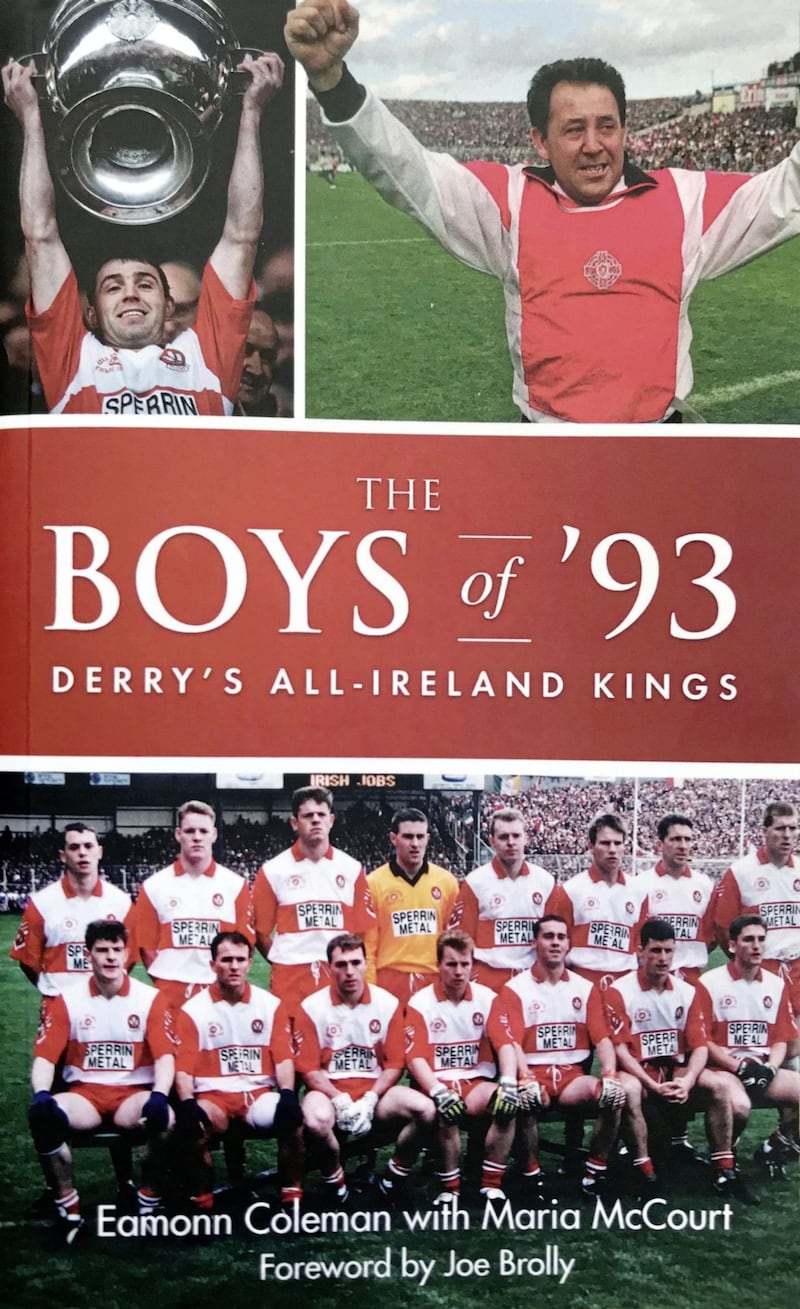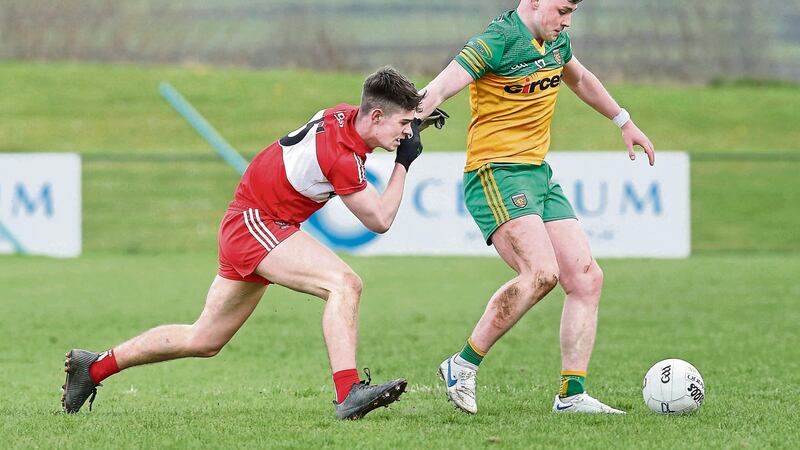A FEW Christmases before he died, Eamonn Coleman bought a huge turkey and insisted the entire family came from the four winds and spent St Stephen’s Day down by Lough Neagh.
Maria McCourt, by that stage, was in the process of working on a book about her godfather. And there was always something about days in Ballymaguigan that stirred her soul.
Every Wednesday when the nine children they had between them were at school, her mother Mae and aunt Eileen would travel down from Belfast for a bit of head peace.
Read More:
- Book reveals how gardai quizzed Derry board official after Henry Downey punched in '93
- Book Extract: The lid lifted on Eamonn Coleman's sacking by the man himself
- Eamonn Coleman: I was sacked because board didn't like players having power
On Sundays, the clan of cousins all jumped in the back of Eileen’s blue van and headed for south Derry.
Maria was always close to her uncle Eamonn. Growing up in the Longlands Estate on the fringes of north Belfast in the 1980s, an allegiance to the GAA wasn’t something that was broadcast.
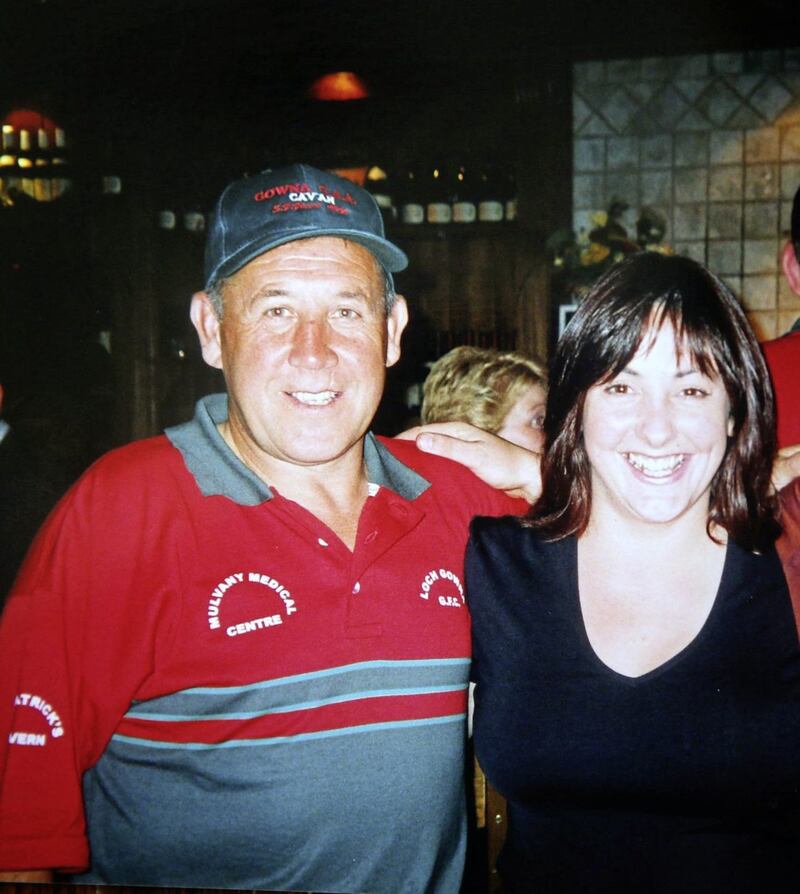
Ballymaguigan offered her that freedom. Sundays down watching at St Trea’s, or later wrecking around in cars, were heaven.
“The first GAA match I was at, Eamonn was playing so I must have been six or seven. I remember the guy standing beside me with the neggin of whiskey in his pocket and me getting knocked with this bottle every time he turned around.
“I was kinda jealous of the relationship people have with the GAA in the country. It is so integral to everything they do. I suppose we only really appreciated it when he started doing what he was with the county team.”
Right throughout his life, Maria was there. When he took Gowna to five Cavan titles, she’d go down and join in the celebrations and stay with him. If he was in Belfast, he’d call in to her.
“We’d have had a cup of tea and watched football videos. I suppose if I hadn’t been into football we wouldn’t have been such great friends.”
Maria took up journalism as a career, which she left in 2015 after a successful 17 years in the business. Within that time, particularly in the South Belfast News, she had to deal with Eamonn in her professional capacity.
“Nightmare. You’re steeling yourself thinking this man’s gonna torture me. Just as he tortured Gary in the dressing rooms, I don’t know if he gave me a worse touch but he certainly didn’t give me an easier touch.”
In 2002, Coleman rang her and asked if she’d ever thought of writing a book.
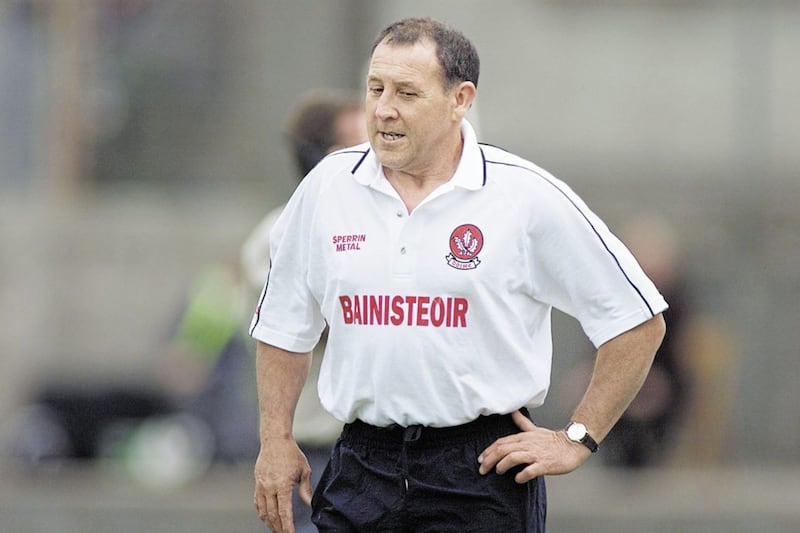
“Just your autobiography,” she replied.
“Good. Meet me tomorrow night at the Carrickdale.”
That began a short series of interviews that were canned midway through when Eamonn decided retirement wasn’t for him.
They went back to it three years later but he had been diagnosed with Non-Hodgkin’s Lymphoma by then.
“It was supposed to be a distraction, something that would keep his mind active. But we didn’t get an awful lot done.
“He was ill, he was treated and he got the reprieve but it was pretty short. It was only six months.
“Looking back now, I think the second time he knew it wasn’t going to work out for him. I certainly didn’t, it never entered my head that he wouldn’t get through it.”
There was enough from the original 2002 tapes to piece together his county’s most famous success and arguably the GAA’s most infamous sacking.
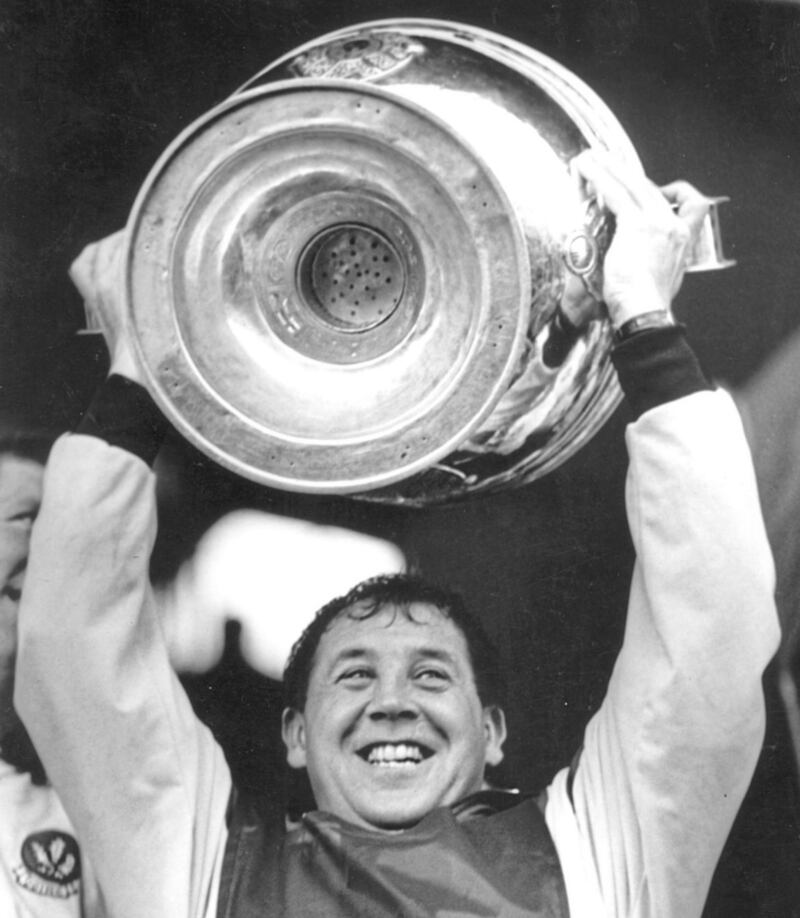
One is as integral as the other to the book, entitled The Boys of ’93, which hits the shops today.
“You couldn’t tell the story of ’93 without going into ’94,” says Maria now, in the quiet upstairs of Belfast Coffee Company.
In her you can see the same devilish smile and, despite a life lived in Belfast, hear some of the vernacular that she clearly picked up from her days in Derry.
Eamonn’s tongue produced a language almost all of its own, though, and that’s one of the book’s real treasures.
“Eamonn’s language, like most other things he did, was intuitive and instinctive, and there were no rules to it,” says the author.
“There’s an instance where he’s talking about Gary going to play for Newry Town and Eamonn putting him out behind the goalposts [as punishment], and the proofreaders in Dublin had shocking trouble with it.
“There was a sentence where he said: ‘I knowed he was gonna do it before he ever did it’. And they’re coming back saying, ‘what does this even mean?’
“So there were wee bits you had to change but I was really keen to hold on to that, because that’s what everybody remembers him for. It’s part of the character.
“His voice was in my head so it would have been almost impossible to write it without putting those bits in. It wouldn’t have been true. There would have been something lacking in it.”
It’s a cutting and unsparing memoir of a man who admits the county board’s decision to get rid of him in the months after they lost their All-Ireland and Ulster titles in a classic with Down “changed me as a person.”
The book also contains a chapter in which Eamonn’s son Gary gives his take on events. The language is raw. It bares a family’s hurt. From within that, there will be others stung by its content.
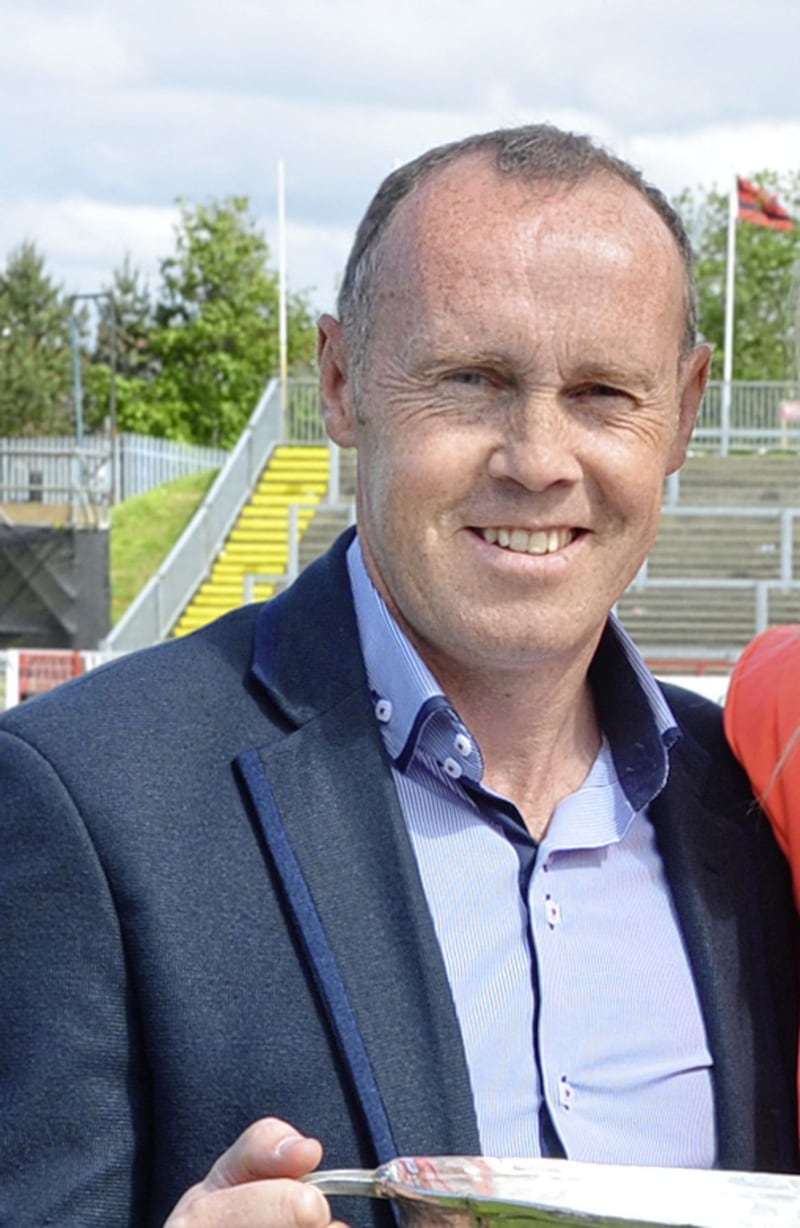
“I didn’t want to put words into his mouth, and I didn’t want to take them out either,” says Maria.
“When I decided to do this, I had to do it all or nothing. It wasn’t up to me to edit him; it wasn’t up to me to mollify things.
“Whether you’re his niece or not, when you agree to do something like this as a writer, you have a responsibility to see it through.
“I don’t want to hurt people unnecessarily or stir up controversy. I take full responsibility for it. If people are unhappy, they’re going to be unhappy.”
There will be a launch tomorrow night in Belfast, another in Ballymaguigan next week. A bit of promotional work in between. And then the book will have to stand on its own two feet, and Maria McCourt’s life will go back to normal, with the hole in it the same as it’s been since June 2007.
“Lately I haven’t [missed him] because it’s been like he’s been with me. It’s going to be hard letting this go. Maybe it’ll be like having to let him go again.
“Not for one second did I think he was going to die. Up until the week before it, even when it came back, we thought he’d be fine.
“Not everybody dies of cancer. But it wasn’t to be unfortunately. When you’re that big a character and you fill that big a space in a family, when you’re not there you fill a big hole.
“It’s been hard to miss him this last while but I’ll miss him again when I have to put the tapes away.”
The wee brickie from Ballymaguigan. Always missed, but never forgotten.
